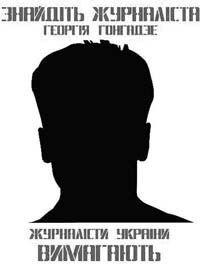Last Friday, on the fifth anniversary of the disappearance of the Ukrainian journalist Heorhiy Gongadze, Ukraine’s State Secretary Oleh Rybachuk ordered the gate opened on Kyiv’s Bankova Street so that people could form a human chain in memory of the murdered journalist. However, judging from what we heard up to and including that day, I would not say that this directive symbolizes any openness on the part of the new government. Addressing a memorial rally in Lviv on September 16, the journalist’s mother, Lesia Gongadze, again said that she does not believe the conclusions of the experts who examined the body found in the Tarashcha woods. She told Interfax-Ukraine that she was not going to sign any official documents of the German expert examination. “I demand an examination of the DNA from the heel and the foot, not just the hair, and I won’t sign any documents unless this is done,” she said. “For some reason no one wants” to conduct this examination, although she has been “insisting on this for several years.” In Gongadze’s view, “somebody higher up” than Prosecutor-General Sviatoslav Piskun is interested in this course of events. “Those who sit in the prosecutor-general’s office are nothing but executors: they just obey orders,” she said. Given the current state of investigation into her son’s murder, Gongadze said that the posthumous conferral of the title of Hero of Ukraine on her son was a mockery. The international non-governmental organization Reporters without Borders has also criticized the Ukrainian government for delays in investigating this crime, Obozrevatel reports. “The instigators have still not been named by the prosecutor’s office, despite repeated promises by President Viktor Yushchenko,” this organization stated on the fifth anniversary of Gongadze’s disappearance. “It is appalling that despite repeated official statements a resolution of the case remains as remote as ever,” state Reporters without Borders. The organization recalls that Mr. Yushchenko claimed on March 1 that the Gongadze case “had been cleared up.”
The European Union is also concerned over the failure to conclude the inquiry into the circumstances of the journalist’s murder. “In the last year there have been positive developments in the sphere of media freedom in Ukraine. These should now be consolidated so that there can no longer be any question about the security and safety of media professionals or their freedom to report objectively on the situation in Ukraine. The EU therefore calls on the Ukrainian authorities to continue to do their utmost to complete the investigation of the murder of Georgiy Gongadze and bring the perpetrators to justice,” says the Declaration by the Presidency on behalf of the European Union regarding the Gongadze case in Ukraine, as quoted by the British Embassy in Ukraine.
Ex-Vice Premier Mykola Tomenko says that “unfortunately, the investigation into the murder of this well-known journalist reminds me of the typical Ukrainian story: everyone knows everything, but they are afraid to launch a case against the instigators of the murder, saying that the political climate in the country is unfavorable for this. Journalists in turn are passive observers: they expect the Gongadze murder case to be solved by itself, without their intervention.”
As for journalists outside Ukraine, www.imi.org quotes Deutsche Welle as saying that a delegation of the National Union of Journalists of the UK and Ireland planned to go to the Ukrainian Embassy in London last Friday to express its concern over the course of the investigation into the case and hand over a copy of the Gongadze inquiry report (see Den, No. 168). Jeremy Dear, the general secretary of the NUJ, said, “The issue for us in the NUJ is that people with power and authority must not think that they can use violence to silence journalists and get away with it. That’s why this case is important for press freedom not just in Ukraine but in the whole of Europe.”







